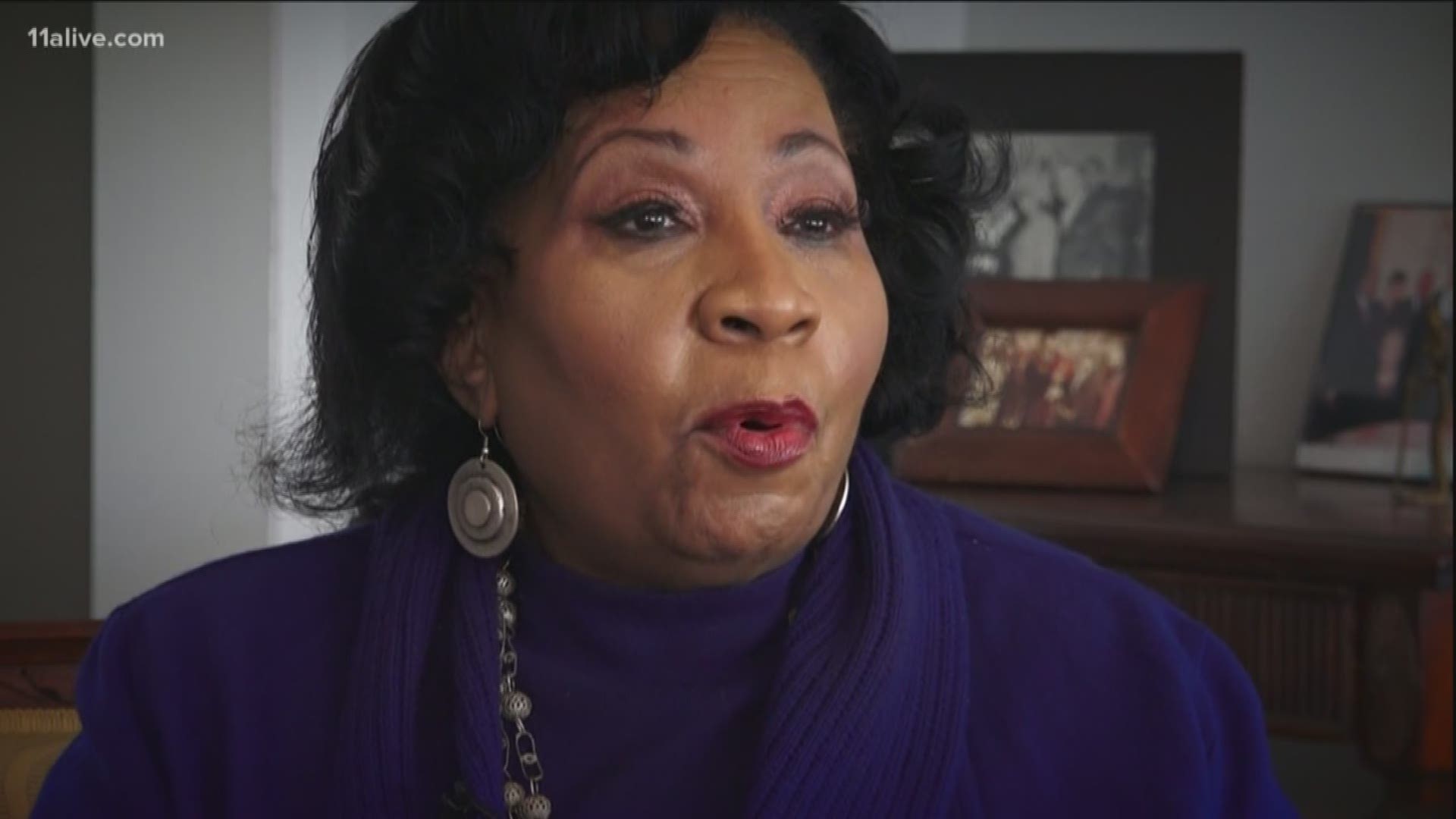ATLANTA — How powerful can racism be?
Scientific evidence shows it's a major factor in killing black mothers.
11Alive looked deep into the issue of maternal mortality with our series Mothers Matter. In honor of Black History Month, we're going behind the headlines to talk with a doctor who has studied the effects racism can have on pregnant mothers and their babies.
It may be something African American women have known for ages, but now science has given it a name. They call it "weathering."
Dr. Fleda Mask Jackson led the pioneering study that researched this and found there was a physical manifestation of stress caused by racism.
"Weathering really captures the accumulation of the stressors. We think of something being beaten down and just hammered and hammered on," she said.
In this case, it's that constant, underlying, exhausting kind of stress caused by racism. Dr. Jackson describes it as the worry that could come with fear over police encounters or discrimination at work or a business.
"Eventually they will break down. They will weather," she said. "That imbalance begins to wear and tear on the system."
The study, done right here in Atlanta, shows weathering can lead to problems in the vascular system, cardiovascular disease, hypertension, depression and in the case of pregnancy, pre-term babies and low birth weight.
RELATED: 'I was doing my best to fight to stay alive' 11Alive Anchor opens up about terrifying baby delivery
"If you always are hyper-vigilant, always concerned about what’s going to happen to you or your children, your neighborhood, your community, it has physiological consequences," said Jackson. "It's just like any kind of poison, and we have to get rid of the poison."
The study looked at well-educated women -- both black and white -- with the belief that if you had the resources to access health care, outcomes would be similar, but that wasn't true.
They found that well-educated African American women were still at a higher risk than uneducated, unemployed and uninsured white women.
"We know that poverty is a risk, but we think that when you erase poverty and not having access to the best possible care, then everything would be even, equal, but it's not. That nullifies the whole class issue, so it takes you right into this is about race and not just race— but racism," Dr. Jackson said. "So the question is why haven't we tackled it?"
She says this issue is multi-generational with a long-term impact.
"There are some indications that those high levels of stress creating poor birth outcomes can be a precursor for chronic conditions in adulthood for the child."
The study shows gendered racism can also lead to depression, and depression and suicide have been listed as reasons for maternal mortality.
"These are preventable deaths. That’s very important," Dr. Jackson said.
Dr. Jackson says fixing this issue will take everyone, but in the meantime, it's important not to lose hope.
"Pregnancy brings hope. It's hope for the future, for the continuation of a family, of a community, of a nation," she said.
Dr. Jackson says one of the first steps to tackling this issue is getting better mental and emotional care for women in general, no matter the color of their skin.
MORE FROM MOTHERS MATTER |

